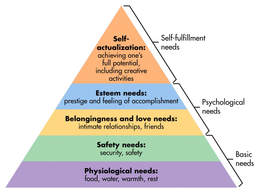Figure It In, LLC
|
Why do we like fireworks when they can cause so much terror in our furry friends and destructiveness to our natural habitat? Are they a reflection of our self-centeredness? Or do they bring us into an awareness of how terribly beautiful life is and how it joins us together in a giant display of celebration? Another way to say self-centered is to use the word narcissist.  There are some great articles on the difference between narcissism and self-centered'ness, narcissism and introversion, and narcissism and aspergers syndrome. That's not what this article is about. Instead I am talking about the decision (or fear based compulsion) to believe and label someone as unable to practice, feel, and experience relationship with another (in this case the one believing them to be a narcissist) in a healthy way that lets both parties get their needs met. Also, what is the difference between self-centered and centered in self? In psychology, the ultimate way that someone is labeled self-centered or narcissistic is by calling them a sociopath (which translates to social wound) or psychopath (which translates to soul wound). Tragically, this word is also thrown around way too often, and I believe only serves to create more of what we fear. At the heart of it, what people often label as 'self-centered' in another person is really that they (the 'labelers') are experiencing a pattern of abusive or neglectful manipulative actions from the offending person (the 'labelee') that in turn creates a need to defend and boundary themselves to feel safe or maintain their health. If this pattern of behavior remains long enough, we might switch to calling that person narcissistic. Sometimes however, this can actually be like looking in a mirror and accusing what we see of negative attributes. I once felt manipulated by a partner who frequently took an unexpectedly long time to get ready when we were leaving for an evening out. We often left home feeling negative towards each other (or at least I towards them!) and it seemed to throw our whole evening off center. I would silently stew waiting for them wondering if they were dragging their feet in leaving due to not wanting to go at all or because of something I had said or done earlier. In someways, my fear and resentment made me into what I feared about my partner, and they even suspected me of being manipulative at one point with how upset I would become on our way to whatever event we had planned to attend. In order to understand our need to call someone narcissistic, let's unpack the word manipulation. First consider that not all manipulation is bad. For example, professional manipulators include chiropractors, magicians, teachers, and yes even counselors. The defining part about these roles is that they are held by people who have learned many tools and techniques that allows them to manipulate others in a way that has reasonable success at causing a positive response and effect ranging over short to long-term periods of time (depending on the role and the tool!). In families, manipulation can be important and healthy in the short-term when one is holding the role of parent or caregiver to children or cognitively compromised elderly parents. The common theme is that those being taken care of may not have the capacity to understand how to get their needs met in a healthy or sustainable way. This can be a slippery slope however, where much deceit, neglect, and abuse is justified on the basis of "I know better than you." So even when one believes that they are manipulating another in the other's best interest, I will always invite the question "What am I getting out of this too?" If contemplated curiously, it will often reveal that just like any relationship, we are always getting something even when we feel like we are being the "giver." One of my professors in college untangled the word manipulation for me by explaining the following: 
Changing a perceived manipulative pattern in relationship requires compassionate boundaries, assertive reflection, and a large dosing of curiosity. Here are a few steps that might help you reframe a belief that someone is being manipulative or narcissistic.  Ask yourself the following questions:
Next, understand that this behavior is not about you, and others have likely experienced it from this person and felt frustrated, irritated, concerned, or confused by it before. If your reactions are more intense than those four emotions (or something similar), it is likely that your companion (whomever you perceive to be manipulative) has been doing this pattern for a while with you and you have not been addressing it or rising to the occasion assertively setting a boundary and/or asking for what you need. This is where the word narcissistic comes in. It seems that this word is often used to point at someone else and justify setting an extreme boundary, or feeling victim to them if we don't believe that we can set boundaries (like if they are our boss) when we often have not practiced assertive communication with the smaller healthy boundary setting all along. When my partner and I first started dating, occasionally they would show up a few minutes late to our planned event. Over time, the excuses and apologies became less frequent, and the amount of time in their tardiness grew. What about my own self-value allowed this to continue without saying anything? How could I have brought this up earlier? This is where we get to the point and title of this article: Being Self-Centered versus Centered in Self. When I am self-centered, I likely believe that I am a good person who is compassionate and considerate of others, but I might also notice a puzzling pattern of people distancing from me over time without explanation or other observable cause. When I am centered in self I believe that I and others are inherently good and always in a flux and flow of cooperative efforts to get our individual needs met and meet the needs of others and that we will make mistakes and sometimes encounter a mismatch of needs and how we meet them for ourselves and each other! This is also the difference between co-dependence and interdependence (more on this later). I make it a practice to redirect myself from believing the worst in someone to remembering the best in both of us. I remember that we all have privilege in some area in our life (like my partner had the means to live independently and single for years before we partnered) and privilege can easily lead to ignorance and blindspots on how we impact others. Instead of assuming that my partner's neglect of our relationship and my needs means that they are a narcisist, maybe I can go through the above questions, assume the best in them, and start creating my own practice of assertive communication to meet my need of growth around the pain of waiting around while they get ready to go. Here are four steps to practicing assertive communication:
Finally, repeat these steps every few times this pattern is observed/experienced again. Get creative on how you are changing you to get your need met. Remember that you are in charge of your emotions and reactions and if you are resenting/labeling/judging the person you are in relationship with, this is often more about you than it is about them.
I would love to know your strategies and tips to recenter when you feel manipulated and need to practice assertive communication!
0 Comments
Leave a Reply. |
About the Author
Ruth Diaz, Psy.D. is an organizational consultant and leadership coach on connecting relationships with ourselves and each other at every level. She currently works in Portland, Oregon. Archives
July 2022
Categories |

 RSS Feed
RSS Feed